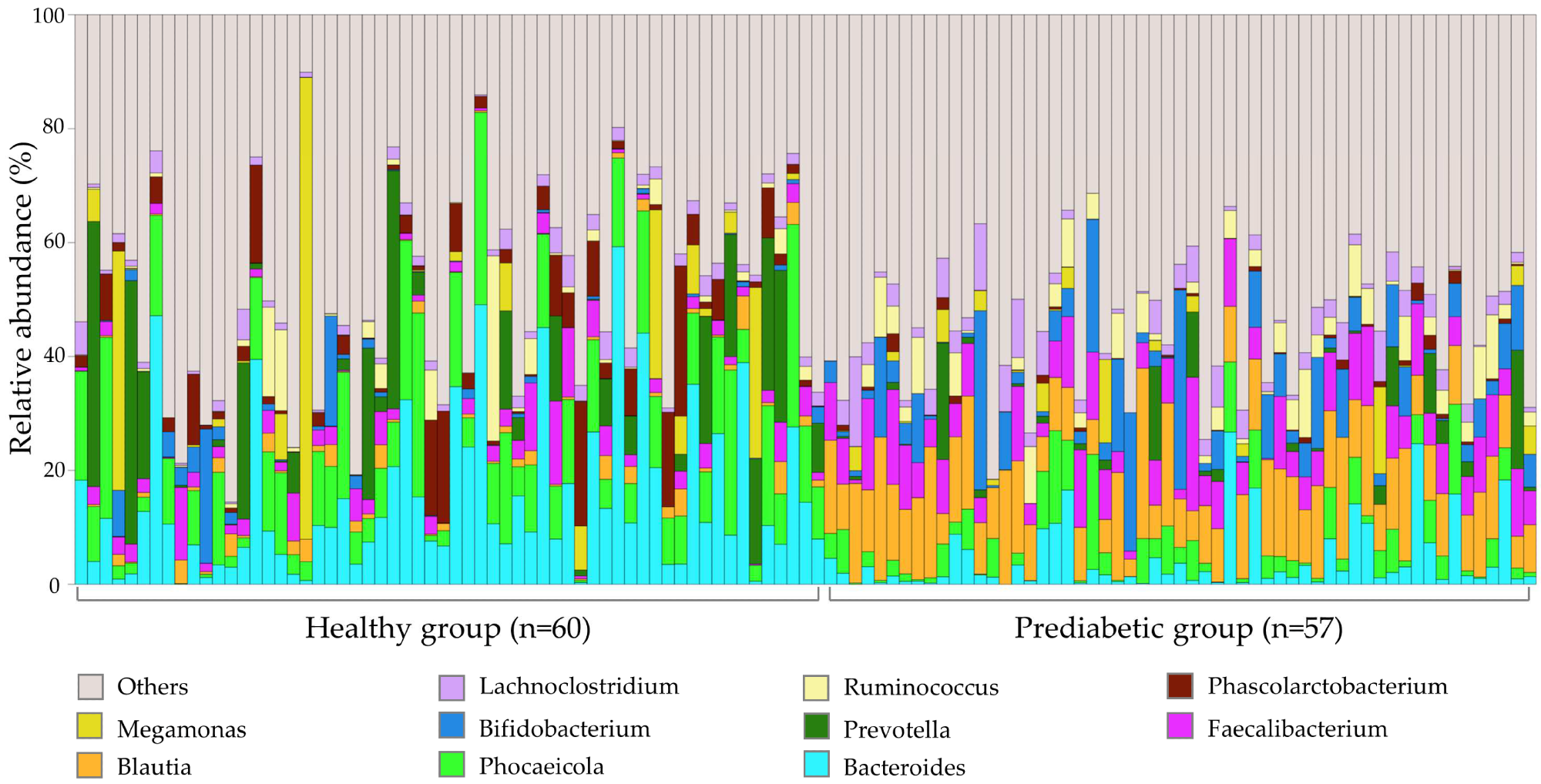Prediabetes is defined as glycated hemoglobin levels between 5.7-6.5% and fasting blood glucose levels between 100-126 mg/dL. Prediabetes significantly increases the mortality risks and burden on the healthcare system; therefore, several interventions have been designed to maintain healthy glucose levels.
For example, lifestyle changes, bariatric surgery, and medications are commonly used to prevent the progression of prediabetes to diabetes. Despite these interventions, a recent American Diabetes Association report indicated that most prediabetic patients eventually develop diabetes. Therefore, it is imperative to develop more effective interventions to prevent or reverse the prediabetic condition.
The gut microbiome and diabetes
The gut microbiome plays a vital role in regulating lipid and glucose metabolism, as gut microbial dysbiosis leads to the development of many diseases. For example, intestinal bacterial composition and abundance changes influence intestinal permeability, which induces insulin resistance and the introduction of bacterial lipopolysaccharides into the bloodstream.
Gut microbial dysbiosis is directly associated with increased gut permeability, which promotes low-grade systemic inflammation. This condition is a key contributor to metabolic syndrome and various chronic diseases, such as type 2 diabetes.
Considering these observations, it is important to understand the mechanism by which intestinal bacteria alterations influence the development of diabetes. This information could ultimately support the development of novel approaches to prevent the progression of prediabetes to diabetes.
Diet, drugs, and age play an important role in altering the gut microbiota. Although several studies have established differential intestinal bacteria between diabetic and healthy individuals, few studies have assessed intestinal bacteria composition in prediabetic patients and its impact on the physiological mechanisms of this health condition.
About the study
The current study compared gut microbial composition between prediabetic patients and healthy individuals. The impact of diet on the gut microbiome of prediabetic patients was also assessed in an effort to identify nutrition-based interventions that could potentially prevent the progression of prediabetes to diabetes.
A total of 57 study participants were recruited from Taipei Tzu-Chi Hospital in Taiwan. Gut microbiota data of 60 healthy individuals between 18 and 65 years were obtained from biobanks and used as the reference group.
Study participants were advised to keep a three-day food record and collect fecal samples on the third day. The nutrient composition of the participants’ diet was measured using Nutritionist Professional software 2.0.
Study findings
The composition, diversity, and abundance of the gut microbiota were significantly reduced in prediabetic patients compared to healthy individuals. This finding was in line with previous studies that indicated differential microbial composition in patients with diabetes. Prediabetic patients also exhibited a higher body mass index (BMI) than controls.
 Gut microbiome profile of 117 fecal samples at the genus level. The remaining bacterial genera are summed as ‘Others’.
Gut microbiome profile of 117 fecal samples at the genus level. The remaining bacterial genera are summed as ‘Others’.
Consistent with previous studies on type 2 diabetes, the current study reported higher levels of Mediterraneibacter, Bifidobacterium, Blautia, Anaerostipes, Clostridium, and Butyricicoccus in the fecal samples of healthy individuals than prediabetic patients.
Previous studies have shown that butyrate maintains the integrity of the intestinal mucosa. This metabolite is synthesized by gut bacteria, namely, Anaerostipes and Faecalibacterium.
Maintaining the integrity of intestinal mucosa can prevent the invasion of pathogenic bacteria in the blood and the destruction of pancreatic β-cells. This finding indicates the indirect role of Anaerostipes and Faecalibacterium in regulating blood glucose levels.
In contrast to prediabetic samples, healthy fecal samples exhibited high levels of Eggerthella and Streptococcus. However, a higher abundance of Phascolarctobacterium, Bacteroides, Paraprevotella, and Parabacteroides was observed in prediabetic fecal samples.
Prediabetic patients exhibited multiple altered physiological metabolic pathways, which affect insulin transmembrane signaling and overexpression of retinoic acid-inducible gene I (RIG-I). This metabolic dysfunction triggers immune cells to attack β cells, affecting blood glucose levels. Previous studies have also indicated that abnormal sphingolipid metabolism leads to insulin resistance and neuronal apoptosis.
Diet plays a vital role in maintaining gut bacterial diversity and abundance. Therefore, prediabetic patients are advised to consume a low carbohydrate (LC) diet with a higher dietary fiber intake. This combination could improve intestinal barrier integrity, thereby preventing the progression of prediabetes to diabetes.
Conclusions
Differential gut microbial composition and abundance were observed in prediabetic patients compared to healthy controls. This difference is also associated with altered metabolic and physiological responses. These findings suggest that improving the gut microbiome could prevent the onset of diabetes by maintaining normal physiological metabolism.
Journal reference:
- Chang, W., Chen, Y., Tseng, H., et al. (2024). Gut Microbiota in Patients with Prediabetes. Nutrients 16(8); 1105. doi:10.3390/nu16081105